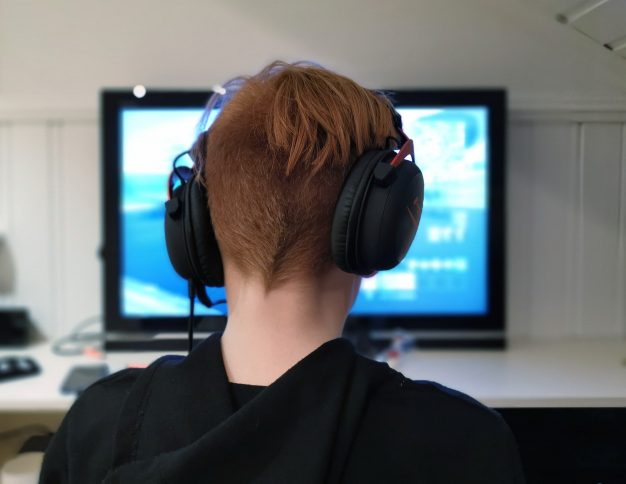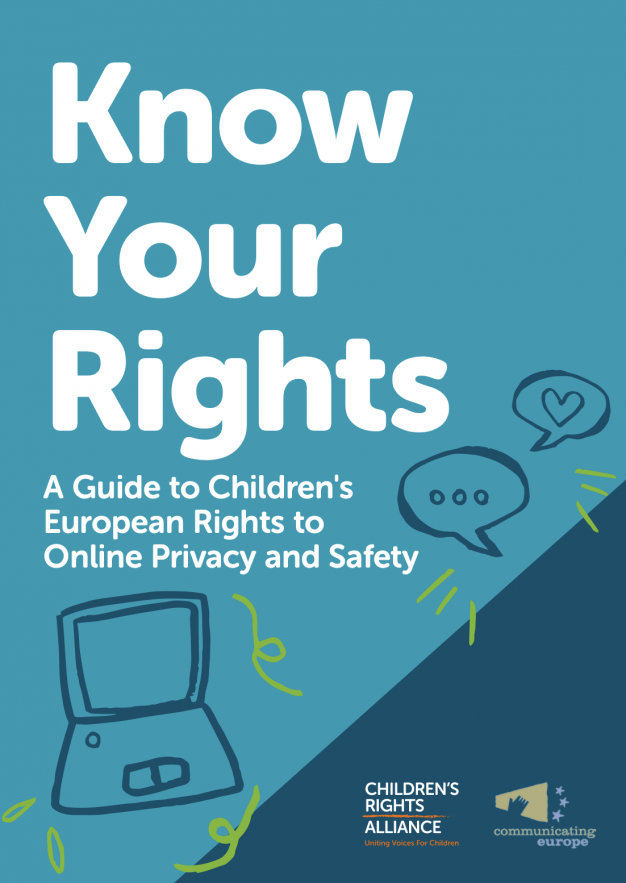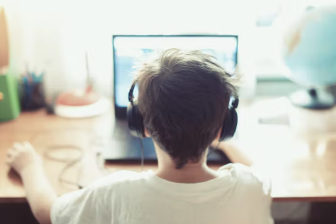
Irish Children’s Rights Alliance: new guide to European online privacy rights
The Children’s Rights Alliance in Ireland has published a new guide designed to increase awareness in children and young people of their European rights to online privacy and safety.
Know Your Rights: A Guide to Children’s European Rights to Online Privacy and Safety has been jointly put together by the government and Communicating Europe Initiative, and aims to make information about rights to online privacy and safety more accessible to the children and young people protected by them
Tanya Ward, Chief Executive of the Children’s Rights Alliance, said that in a year when children were spending more time online than ever before, there are ‘very real consequences’ to not being properly informed about their rights.
“We are in the era of the ‘datafication’ of children and young people,” added Ward. “Companies are very sophisticated when it comes to the design of their online offerings for children, developing platforms that are purpose-built to encourage compulsive use. They are the experts when it comes to harvesting data. This is worrying when we consider that one third of internet users globally are children. We know most children are online from the age of eight or nine.”

She pointed to research by the Irish Heart Foundation which showed the country’s high childhood obesity rate was being fuelled by online junk food advertising targeting children and teenagers, and in particular boys. “This guide aims to inform young people about their European rights but also empower them to protect themselves online,” she continued.
“Recent studies have shown that Irish teenagers experience higher than average cyberbullying and problematic social media use. These can often be very difficult experiences for the young people involved or for parents worried about their child and unsure about what they can do.
Our guide answers questions like: What should I do if someone under 18 shares an intimate photo of themselves with me? What should I do if an intimate image or video of my child is shared online? If I am being bullied online what should I do and who can I complain to?
The alliance believes it is ‘critical’ that children and young people learn what the law is saying so they do not get themselves into very serious trouble. Understanding their legal rights, it adds, will provide them with the necessary tools to take action when they feel their rights are not being protected or respected. There are remedies that can help keep children and young people safe and their personal data safe while online.
Tanya Ward added: “The General Data Protection Regulation is not perfect, but it does contain special protections for children. There are actions children, young people or their parents and guardians can take to protect themselves online. However, the responsibility should not lie with the user alone. Far more needs to be done by the bigger technology and marketing companies who capitalise on the harvesting of online data.
“Ireland falls short of other countries in this space. The Government also must ensure that child safety online is an absolute priority and the upcoming Online Safety and Media Commission Bill and the Harmful Communications Bill are a good place to start.”




